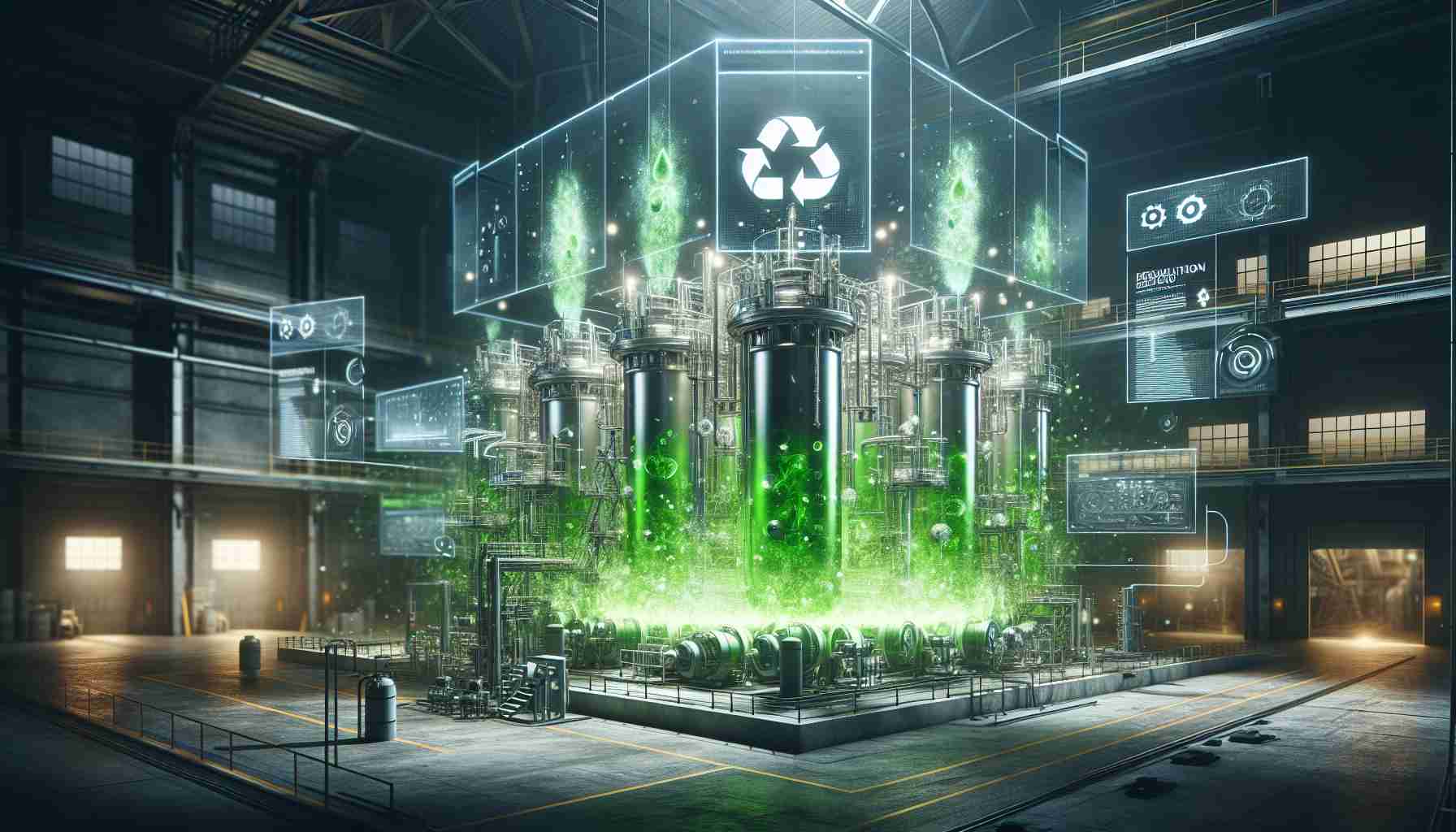
Advait Energy Transitions, a leader in sustainable energy solutions, is spearheading a new initiative by establishing a green hydrogen plant with a capacity of 2,000 metric tons per annum. This ambitious project, set to be constructed on a turnkey basis, will not only shift the paradigm of hydrogen production but also include comprehensive operation and maintenance services for a year once the plant is operational.
The company has formalized a Memorandum of Understanding with Haryana City Gas Distribution (Bhiwadi) Ltd, highlighting the significance of this endeavor in promoting clean energy. The project is set to integrate cutting-edge 15 MW alkaline electrolysers, as well as the entire balance-of-plant system essential for effective hydrogen generation. In addition to production, Advait will offer consultancy services to facilitate the application of this green hydrogen within various industrial and commercial sectors.
Meanwhile, the India Hydrogen Alliance is advocating for a substantial increase in government funding to foster the National Green Hydrogen Mission, stressing the importance of developing Green Hydrogen Hubs across the country. These hubs are pivotal for maximizing resource utilization and scaling production effectively.
On the international front, collaboration is growing, with Algeria, Austria, Germany, Italy, and Tunisia united to create the Southern Hydrogen Corridor. This massive initiative aims to connect North Africa to Europe, symbolizing a significant step toward a sustainable energy future.
The Future Landscape of Green Hydrogen
As Advait Energy Transitions embarks on its green hydrogen initiative, the implications reach far beyond the scope of energy production. Green hydrogen represents a transformative shift in the energy landscape, a critical component in reducing greenhouse gas emissions and combating climate change. Societally, the successful deployment of green hydrogen can catalyze job creation in emerging industries, as new skills and expertise will be required to operate and maintain these facilities. This transition is not merely technological; it signifies a cultural shift towards sustainability and innovative thinking in traditional sectors.
Economically, the establishment of green hydrogen hubs, as advocated by the India Hydrogen Alliance, could create substantial new markets for clean energy technologies. The global hydrogen market, projected to exceed $200 billion by 2025, is poised for rapid growth. Nations previously reliant on fossil fuels can redefine their energy portfolios, attracting foreign investment and leading to enhanced energy security.
Moreover, the environmental benefits are profound. Green hydrogen is produced using renewable energy sources, drastically reducing the carbon footprint associated with traditional hydrogen production methods. By curbing emissions from heavy industries and transportation, this initiative could play a pivotal role in achieving international climate targets.
As global collaborations like the Southern Hydrogen Corridor emerge, the groundwork is laid for interconnected energy systems, allowing countries to share resources and technologies. This interconnected future could reshape geopolitics, moving away from fossil fuel dependency towards shared goals of sustainability and resilience. Hence, Advait’s venture is not merely a local project; it embodies a larger movement towards a sustainable energy ecosystem with profound global repercussions.
Revolutionizing Energy: Advait Energy Transitions’ Green Hydrogen Initiative
Introduction
Advait Energy Transitions is at the forefront of sustainable energy innovation, recently announcing its ambitious plan to establish a green hydrogen plant with a production capacity of 2,000 metric tons per annum. This strategic venture marks a potentially transformative shift in hydrogen production methodologies and promotes clean energy initiatives in India.
Project Overview
The forthcoming green hydrogen plant will be developed on a turnkey basis, ensuring that the facility is comprehensively designed and ready for operation. In addition, Advait Energy will provide thorough operation and maintenance services for one year post-commissioning, reinforcing its commitment to sustainability and efficiency.
Technology and Capabilities
Central to this initiative are advanced 15 MW alkaline electrolysers, which will be integral to the production of green hydrogen. These electrolysers enable the effective splitting of water into hydrogen and oxygen using renewable energy, thereby minimizing carbon emissions. Furthermore, Advait Energy will oversee the complete balance-of-plant system essential for optimal hydrogen generation.
Consultancy and Application
In addition to hydrogen production, Advait will extend its expertise by offering consultancy services. These services aim to assist various industrial and commercial sectors in seamlessly incorporating green hydrogen into their energy frameworks, enhancing sustainability and reducing reliance on fossil fuels.
Government Support and National Strategy
The initiative aligns with broader national objectives, as the India Hydrogen Alliance calls for increased government financing to support the National Green Hydrogen Mission. This mission seeks to create Green Hydrogen Hubs across India, enhancing resource utilization and scaling production capabilities significantly. These hubs are predicted to play a crucial role in achieving India’s sustainable energy goals.
International Collaboration
On a global scale, there are significant collaborations forming to promote hydrogen economies. The Southern Hydrogen Corridor initiative, which involves countries such as Algeria, Austria, Germany, Italy, and Tunisia, aims to establish comprehensive hydrogen networks connecting North Africa with Europe. This corridor represents a strategic tie that could enhance the efficiency of hydrogen transport and distribution, further solidifying commitments to a sustainable energy future.
Market Insights and Future Trends
1. Projections for Growth: The green hydrogen market is anticipated to experience exponential growth over the next decade, driven by governmental policies and advancements in hydrogen technology.
2. Sustainability Focus: Companies adopting green hydrogen solutions contribute significantly to lowering their carbon footprint, aligning with global climate change goals.
3. Economic Opportunities: The establishment of hydrogen production facilities opens new job markets and economic opportunities within the renewable energy sector.
Pros and Cons of Green Hydrogen
Pros:
– Environmentally friendly energy source with low carbon emissions.
– Versatile applications in various sectors including transportation and manufacturing.
– Promotes energy independence and security.
Cons:
– Initially high production costs compared to fossil fuels.
– The need for significant infrastructure development to support transportation and distribution.
– Technological challenges associated with scaling production.
Conclusion
Advait Energy Transitions’ green hydrogen plant represents a significant leap forward in sustainable energy solutions. By fostering innovation and collaboration within the green hydrogen sector, the initiative not only addresses urgent energy needs but also paves the way for a cleaner, more sustainable future. As the industry evolves, continuous support and investment from both governmental bodies and private enterprises will be essential to sustain this momentum.
For more information on sustainable energy initiatives, visit Advait Energy.



